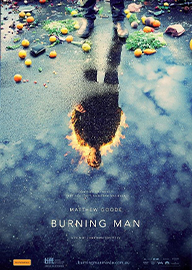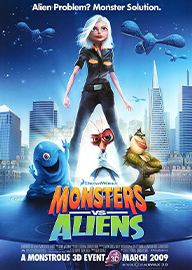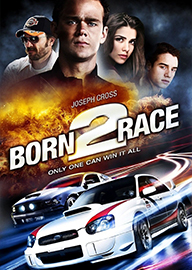Atrangi Re
- 6.5
- Romance
- 2021
- 2h 30m
- PG-13
a magical Hindi romantic drama directed by Aanand L. Rai, starring Sara Ali Khan, Dhanush, and Akshay Kumar. It tells the strange, heart-rending story of Rinku, a wild-hearted woman torn between reality and imagination, and the two men who embody her past and healing. Blending A.R. Rahman’s soulful music, vivid cinematography, and deep emotional truth, Atrangi Re becomes a cinematic celebration of love, trauma, and the beauty of being “atrangi.”













Comments
0Reviews
0Summery
1Please sign in to comment.
Please sign in to review.
Atrangi Re (2021) begins with chaos, color, and a scream that turns into laughter. From its first frame, Aanand L. Rai’s direction throws us into a whirlpool of emotion that feels both magical and deeply human. The film unfolds in a rush of energy, a visual carnival of North Indian textures, train whistles, marriage processions, and the unpredictable rhythm of love itself. At its center stands Rinku Suryavanshi (Sara Ali Khan), a young woman from Bihar who carries a tempest within her eyes. She is wild, impulsive, rebellious, a survivor of pain disguised as mischief. Her world is full of music and madness, superstition and scars. When she is forced into a sudden marriage with Vishu Radhakrishnan (Dhanush), a gentle Tamil medical student kidnapped by her family for the ritual of an unwanted wedding, the story begins its strange, beautiful dance between comedy, heartbreak, and fantasy.
The marriage itself is absurd and cinematic — drums beat, chaos erupts, colors collide. Vishu is caught between disbelief and resignation, Rinku between desperation and destiny. She tells him, even as she signs the papers, that she already loves someone else — Sajjad Ali (Akshay Kumar), a magician and entertainer who, she insists, will return to claim her. Vishu, trapped by tradition and decency, tries to make sense of her story and her spirit. He is everything she is not: composed, patient, rational. And yet, something about her fire draws him in. The camera follows their uneasy companionship across trains and cities, the pulse of A.R. Rahman’s music weaving through their silences. Rahman’s score is not background noise; it is soul. Each melody floats like memory, each rhythm echoes heartbeat and heartbreak.
What begins as a quirky romantic comedy deepens into something darker and infinitely more moving. Vishu discovers that Rinku’s beloved Sajjad is not what he seems. The film gradually reveals that Sajjad exists in the intersection of trauma and imagination — a ghost of love created by Rinku’s fractured childhood. Her parents’ violent end left her clinging to a fantasy, and Sajjad Ali became both lover and savior in her mind. Aanand L. Rai transforms this revelation into a moment of tenderness rather than shock. Instead of treating Rinku’s condition as madness, the film treats it as the language of grief — her heart’s rebellion against a world that failed to protect her. Vishu, rather than turning away, chooses empathy. His love for Rinku becomes a quiet revolution, proving that real affection is not possession but understanding.
The middle passages of Atrangi Re are visual poetry. Rai and cinematographer Pankaj Kumar paint the screen with saturated emotion — the reds of wedding saris, the blues of twilight trains, the gold of circus tents where imagination and pain blur together. The editing pulses to the rhythm of A.R. Rahman’s music: songs like “Rait Zara Si,” “Tere Rang,” and “Little Little” serve as emotional soliloquies rather than mere interludes. The narrative’s structure becomes deliberately non-linear, slipping between reality and fantasy, memory and present. Rinku’s world folds in on itself until even Vishu begins to see Sajjad as she does — not an illusion to be mocked but a manifestation of deep love and loss.
Dhanush delivers one of his most poignant performances, a blend of innocence and maturity that grounds the film’s eccentricity. His Vishu is not the typical Bollywood hero; he is flawed, kind, painfully human. When he realizes he has fallen in love with a woman whose heart belongs to a phantom, he doesn’t fight fate with force but with compassion. Sara Ali Khan brings Rinku to life with unguarded energy, balancing fragility with defiance. She laughs like a child and cries like someone twice her age. Akshay Kumar, in a role that bends perception, plays Sajjad with warmth and melancholy — a man who might be real, might be memory, but is always love. Together, they form a triangle of emotion that transcends logic. The story doesn’t ask who wins Rinku’s heart; it asks how love heals a broken one.
Cinematically, Atrangi Re blends realism and fantasy in a way that mirrors the contradictions of Indian life — joy and sorrow sharing the same frame, humor coexisting with tragedy. Aanand L. Rai’s signature world, seen in films like Raanjhanaa and Tanu Weds Manu, returns here in full bloom: small-town chaos infused with cosmic wonder. He uses carnival imagery, traveling circuses, trains, and fireworks not as decoration but as emotional metaphor. Every frame glows with metaphorical light — the magic show where Sajjad first appears, the fireworks that mimic explosions of memory, the mirrors that shatter when truth strikes. The storytelling never mocks emotion; it elevates it into art.
As the film moves toward its final act, Vishu must make the ultimate choice — to rescue Rinku not from her fantasies but from her fear. He stands beside her as she confronts her trauma, helping her separate memory from illusion. The climactic sequence where Rinku performs onstage, surrounded by the ghosts of her past, becomes a symphony of color, motion, and catharsis. Rahman’s music swells, the choreography turns feverish, and the frame explodes into transcendence. Sajjad, the phantom of her imagination, fades not into death but into acceptance. Love, the film suggests, can exist in many forms — some real, some imagined, but all transformative.
In its closing moments, Atrangi Re circles back to its opening chaos. Rinku, now calmer, freer, and self-aware, walks beside Vishu, smiling not because she is saved but because she has learned to live. The film ends not with marriage or resolution but with liberation — the discovery that love is not about escape, but about understanding. Aanand L. Rai’s storytelling doesn’t follow formula; it follows feeling. The title itself — Atrangi Re, meaning “so strange” — becomes a statement of philosophy. Love, memory, madness, and forgiveness are all strange, and yet they are what make us human. Beneath its musical colors and romantic fantasy, Atrangi Re is a film about mental health, trauma, and the cultural silence that surrounds both. It portrays hallucination not as weakness but as survival instinct — the mind’s attempt to heal what the world broke. The screenplay refuses to judge Rinku’s condition; instead, it allows her imagination to exist as a legitimate part of her being. This empathy distinguishes Atrangi Re from typical Bollywood melodrama. It turns spectacle into sincerity, and performance into therapy.
A.R. Rahman’s soundtrack amplifies this sincerity. Each song is a heartbeat in Rinku’s story, blending folk, orchestral, and modern electronic elements into one unified emotional score. Irshad Kamil’s lyrics translate pain into poetry, especially in lines that speak of lost love, memory, and time. The music does what words cannot: it carries emotion across language, culture, and silence. Cinematographically, the film uses contrast — bright frames for fantasy, muted palettes for truth — to trace Rinku’s healing. Every shadow becomes symbolic, every flicker of light a step toward self-acceptance. At its emotional core, Atrangi Re argues that love doesn’t need to make sense. It doesn’t exist to fit into moral boxes or social definitions. It is wild, irrational, strange — and that strangeness is its beauty. The film’s final message is simple yet profound: people are not defined by their pain; they are defined by how they transform it. The closing image — Rinku and Vishu walking away as the circus lights fade behind them — captures that transformation. It’s not a fairy-tale ending; it’s a beginning born of acceptance. Atrangi Re is both Bollywood spectacle and intimate psychological portrait. It dares to show that love can coexist with madness, that imagination can heal, and that empathy can be revolutionary. Aanand L. Rai and A.R. Rahman together craft not just a movie but an emotional experience — one that blurs the border between cinema and soul. In every frame lies a balance between fantasy and truth, laughter and grief, logic and magic. It is a story that sings, bleeds, and dreams all at once — an ode to those who have loved so fiercely that reality itself bends to their will.